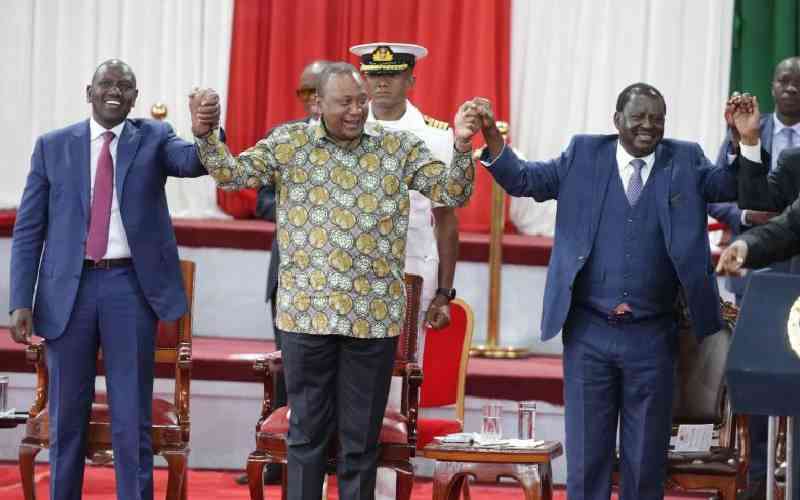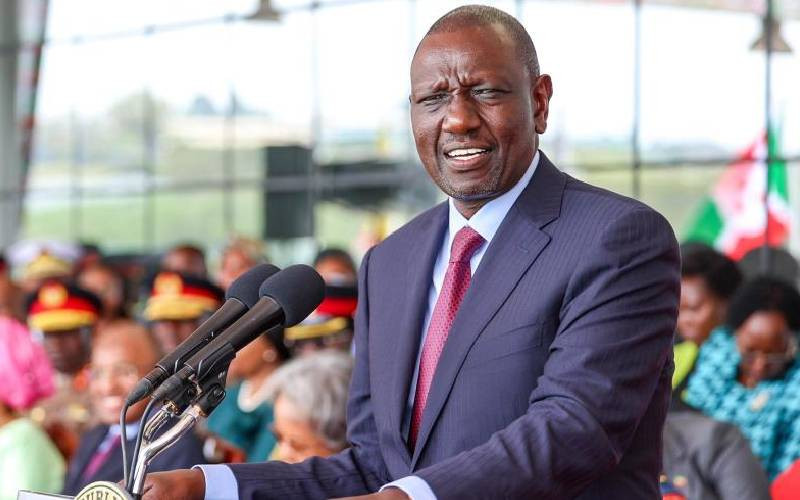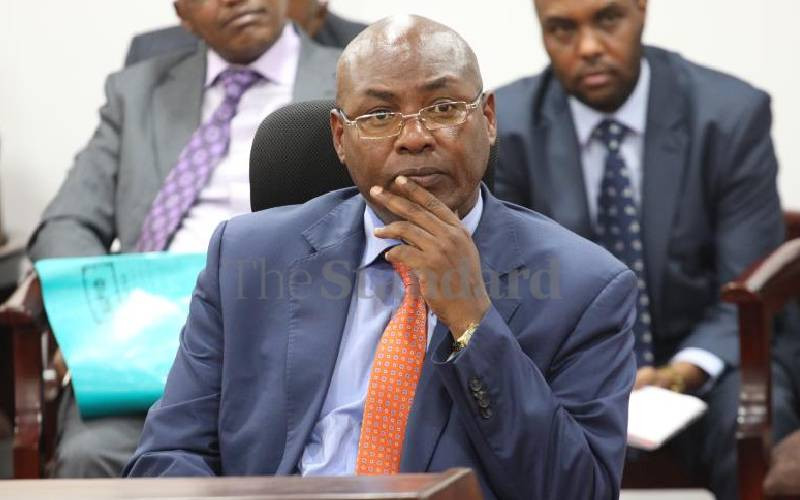If there were no William Ruto, would there be a Building Bridges Initiative (BBI)? If the Deputy President had chosen to pursue wheat farming in Uasin Gishu, or if he were a quiet shopkeeper at the Sugoi trading centre, would we be considering a constitutional amendment? The answer is a resounding yes. We definitely would. And here is why.
Kenya would still have the same kind of political tensions we are experiencing now. We have practised the politics of hostility for so long that we do not know how politics without hate looks like. Three things define our current state of political antagonism. The first is a Polarising Theory. In the absence of Ruto, there would be other presidential candidates who would create a dominant ‘Us versus Them’ narrative.
If the Hustler versus Dynasty conversation were not in place, someone would have turned our focus to the ‘Kikuyus and Kalenjins have always been in power’ conversation. And this would have been the dominant Polarising Theory. They would have made a calculation of the number of years since independence even vice presidents have come from the two tribes (It is almost 30 years).
Then the bitterness would be riled up, the alliances built up and the animosity shored up. The second is creation of a BogeyMan. This person, or people, are the embodiment of all the bad things featured in the ‘Polarising Theory. If there is a problem, someone must be blamed for it. Politicians like to pretend that their intention is to articulate promises and plans for their people. But in truth, a politician’s greatest asset is the ability to generate mass hate for the ‘other side’. The politician must paint their opponent as the representation of all that is wicked and abominable. The politician must create the ‘BogeyMan.’
In 2013, the Polarising Theory was that the racist West intended to lord its imperialistic intentions over Kenya, a proud sovereign nation. The embodiment of this polarising theory was the Assistant Secretary of State Johnnie Carson who ‘dared’ to tell us “choices have consequences”.
In Ruto’s Polarising Theory, the BogeyMan is wealth. Anyone who has material prosperity is against the common man. Everyone that is, except Ruto himself of course. The danger in this is that the Bogeyman tag will not end at ‘the Dynasties’, but will also be extended to other Kenyans who are materially prosperous, doing well for themselves or making honest efforts to build wealth. This BogeyMan narrative has the capacity to degenerate to a class war.
The third and final thing that happens in the Politics of Hostility, is a national ‘allergic reaction’ to ideas. If today a survey is undertaken all over Kenya, we will find that those who have an aversion to the BBI report, and those who support it can be clustered along ethnic lines. And you will also find that where there is discussion that pretends to be based on conviction or ideas, it is convoluted to suit the pretender’s ethnic persuasion.
So back to the original question: If there were no Ruto, would there be a BBI? And once again the answer is yes. In a country such as ours where hate is the most powerful driver of political action and cooperation, and the outlet for political aggression is often the ordinary Kenyan, a building bridges moment is not only important but imperative.
Chapter nine
One of the most important constitutional reforms in the BBI report is to amend Chapter nine on the Executive by expanding the national executive ‘in order to promote greater inclusivity, and mitigate the drawbacks of the winner-take-all electoral formula’. The recommendation proposes the introduction of the office of the Prime Minister and two Deputy Prime Ministers.
A parliamentary system could be the answer to our bad politics. In our 54 years as an independent nation state, we have never resolved the famous Kanu, Kadu debate. Our founding fathers were pragmatic. At Lancaster, they realised that the majority ethnic groups, Gema and Luo would dominate the smaller tribes then, such as the Kalenjin, Mijikenda and Luhya.
And so with this reality in mind, they settled on a constitutional framework that sought to tame the powers of the central government while strengthening regional autonomy. In many ways, the 2010 Constitution set us up for failure. It failed to create an equitable system for distribution of political power. It only solved the Kanu, Kadu debate partially, through devolution, but entrenched the powers of the dominant ethnic groups. As a result, we live in a shaky system, where regime change means potential political upheaval.
Another proposal is the introduction of an Official Leader of the Opposition, complete with a Shadow Cabinet.
This proposal has the potential to shift our political thinking towards ideas, instead of ethnicity. Even though it may not be constitutionally legislated, it could simply be included in our political culture. Imagine having a government in waiting that has been shadowing the existing one, not just by critiquing, but by offering alternative thinking and providing actual experience and training for potential future leaders. It would make it more difficult to lie to Kenyans that you will propel Kenya into a super economy using wheelbarrows, if you haven’t been shadowing the government and making that same argument.
- The writer is a PhD candidate in political economy at SMC University. Twitter:@DaisyMaina7
Stay informed. Subscribe to our newsletter
 The Standard Group Plc is a
multi-media organization with investments in media platforms spanning newspaper
print operations, television, radio broadcasting, digital and online services. The
Standard Group is recognized as a leading multi-media house in Kenya with a key
influence in matters of national and international interest.
The Standard Group Plc is a
multi-media organization with investments in media platforms spanning newspaper
print operations, television, radio broadcasting, digital and online services. The
Standard Group is recognized as a leading multi-media house in Kenya with a key
influence in matters of national and international interest.
 The Standard Group Plc is a
multi-media organization with investments in media platforms spanning newspaper
print operations, television, radio broadcasting, digital and online services. The
Standard Group is recognized as a leading multi-media house in Kenya with a key
influence in matters of national and international interest.
The Standard Group Plc is a
multi-media organization with investments in media platforms spanning newspaper
print operations, television, radio broadcasting, digital and online services. The
Standard Group is recognized as a leading multi-media house in Kenya with a key
influence in matters of national and international interest.








